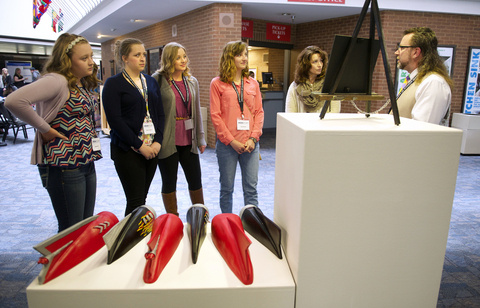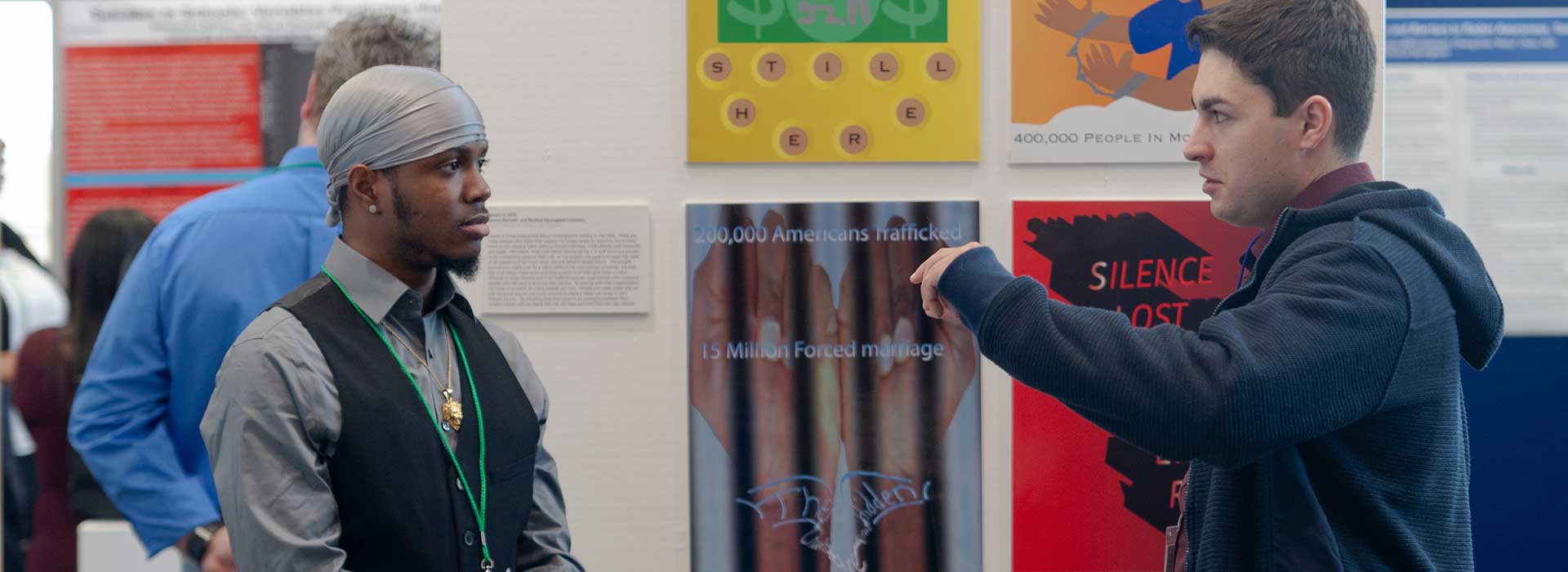
Considering whether to apply to be a part of this special day? The info and tips below may convince you to become involved, and will lead to an enriching and exciting experience.
Benefits For Students
- the development of skills to function more independently
- the opportunity to put classroom knowledge into practice
- the identification of career interests
- the building of mentor relationships between faculty and students
- the stimulation that comes with critical thinking
- the opportunity to participate in new discoveries
- the ability to better understand research methodologies
- the stimulation of creativity
- the increased likelihood of acceptance into graduate or professional school
- the ability to communicate to a wide audience
- recognition by one’s peers
- the sheer excitement created by intellectual activity
- the enhanced ability grasp the philosophy of life-long learning
Tips for Abstract Submission and Presentation Preparation
- Communicate with your faculty mentor early. Your mentor is a professional; you will soon become a professional. Learn from him or her the proper procedures for designing and presenting your project. Let your mentor know early your hopes for the conference, so that he or she may guide you with wisdom.
- Your mentor must approve your abstract and submit it. Work with your mentor so that your presentation will be of professional quality.
- Please check out this additional YouTube video featuring a student panel giving advice on proper presentation techniques.
- Whether you are giving an oral presentation, a poster presentation, or art exhibition, practice what you will say to audience participants.
- If you are giving an oral presentation:
- Practice and time your talk. You will have about 10 minutes to speak, followed by a couple of minutes to answer questions. You will not be permitted to exceed this limit. In preparation for a professional conference, the speaker practices and times the presentation. Be professional, and do this as well.
- Use PowerPoint judiciously. A professional uses PowerPoint as an aid to outline and guide a presentation, not to substitute for a presentation.
- If you are giving a poster presentation:
- Be able to give a general overview of your study, including the most important results in one or two minutes.
- If you are exhibiting art work:
- Be able to give an overview of the concept or idea behind your piece and the techniques you used to create it in one or two minutes.
On the Day of the Presentation
- Oral presenters should plan to arrive five minutes before the session starts and check in with moderators.
- You do not need a hard copy of your presentation. Professional-quality, well-organized handouts that aid your presentation are welcome and useful.
- Dress professionally for your presentation. Your appearance communicates your competency, both at this conference and in all other professional situations.
- You may invite all friends and family to your presentation. You will impress them with your achievements, and they will in turn celebrate your success.
